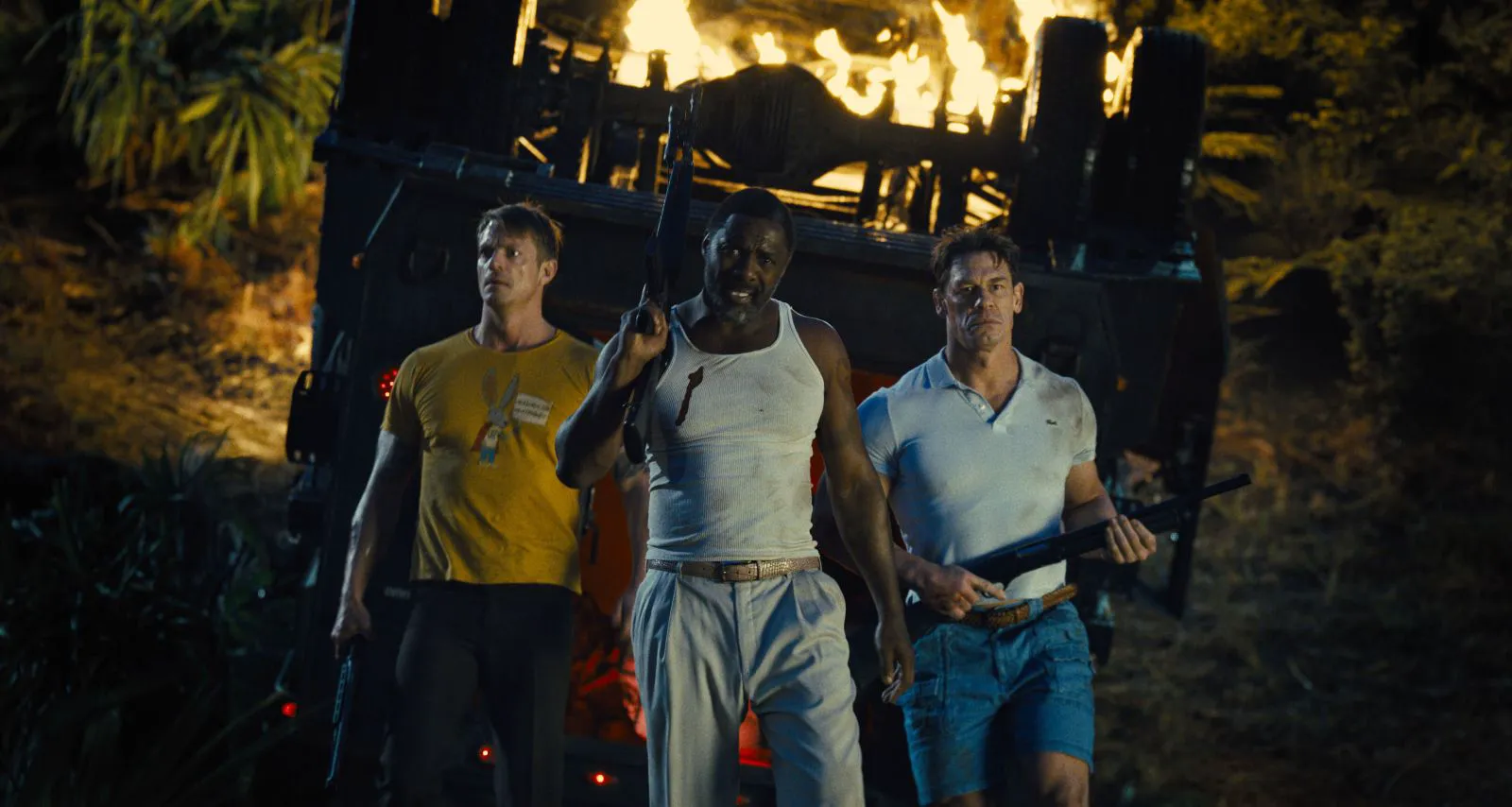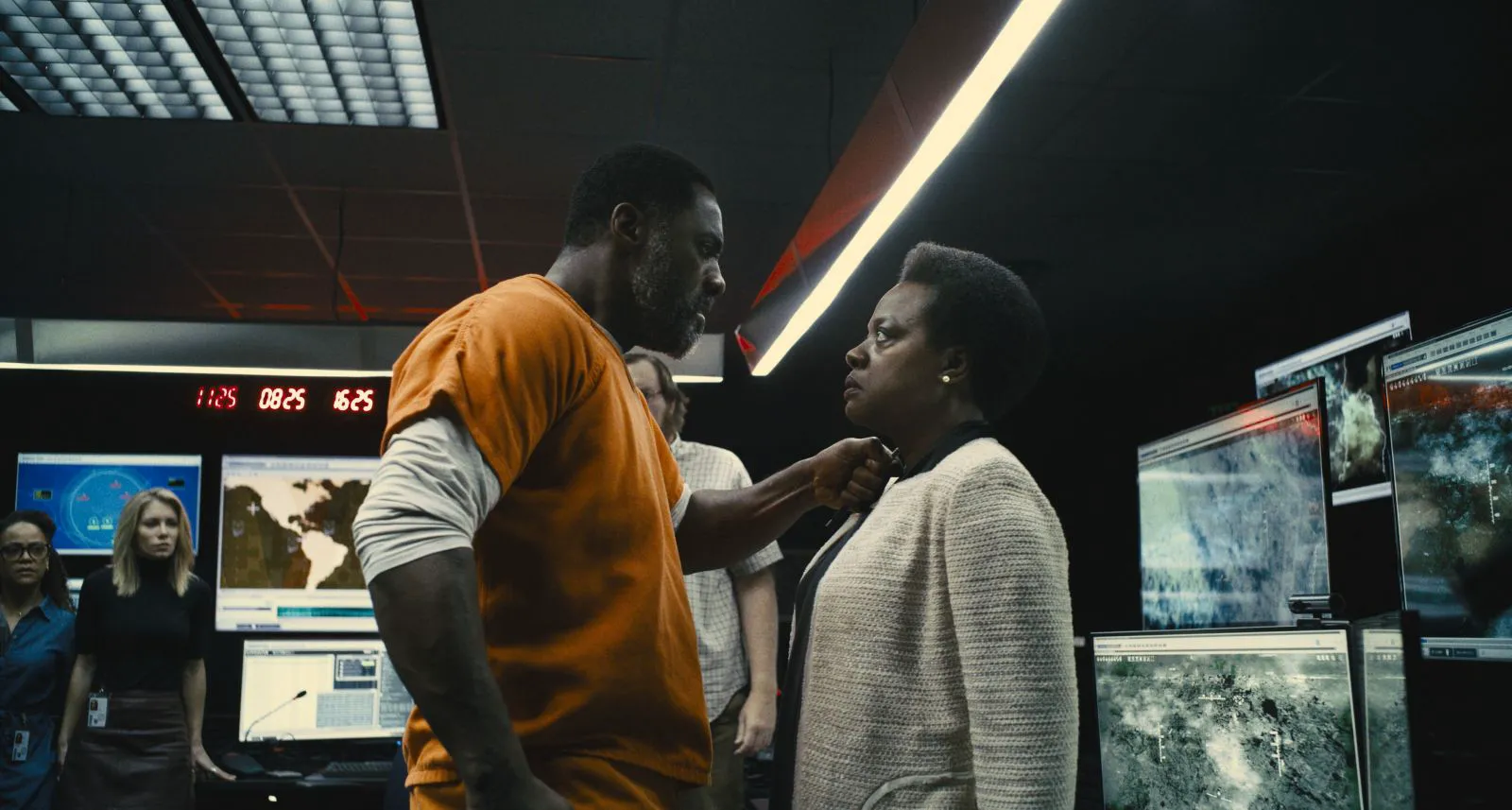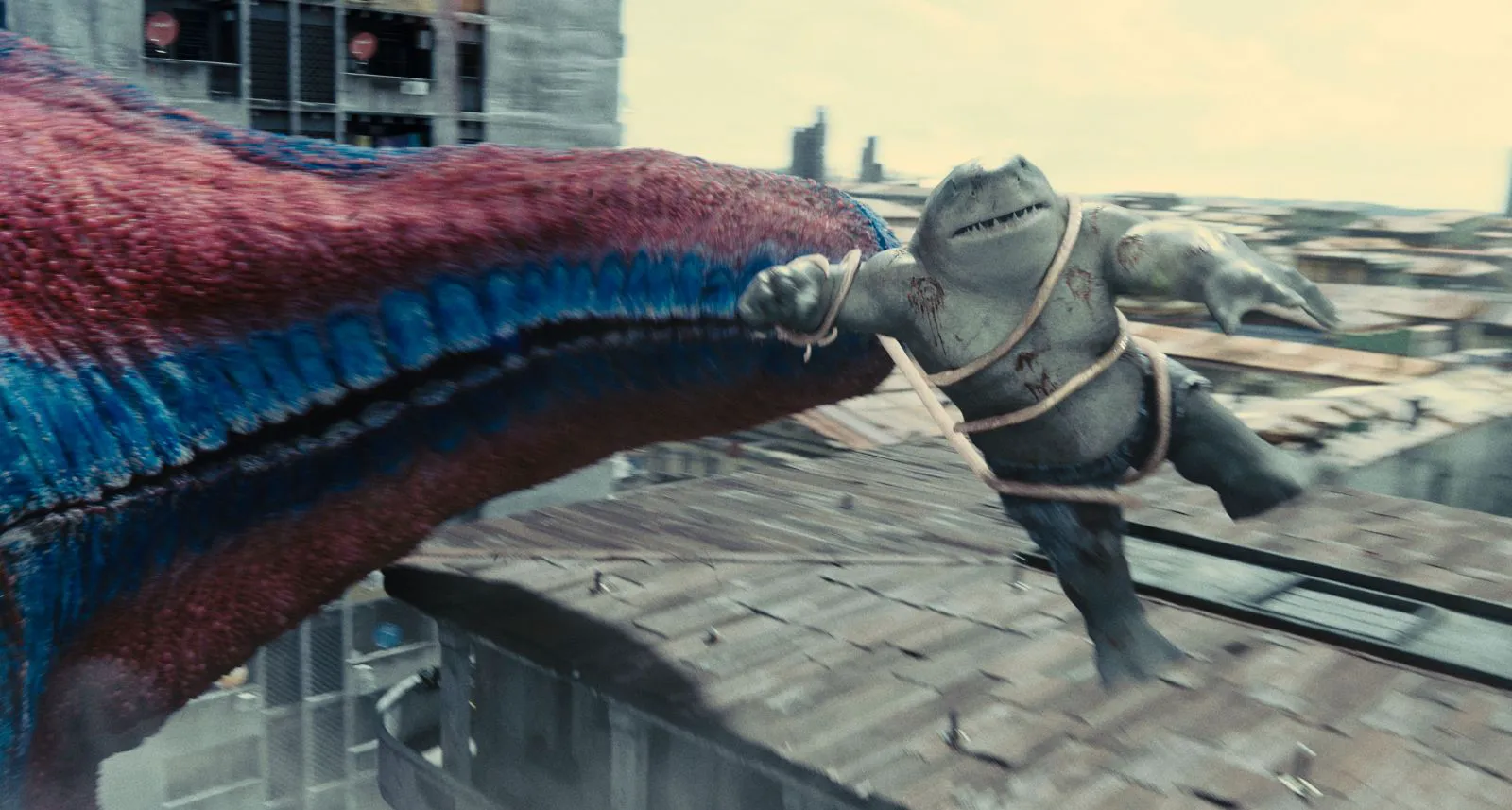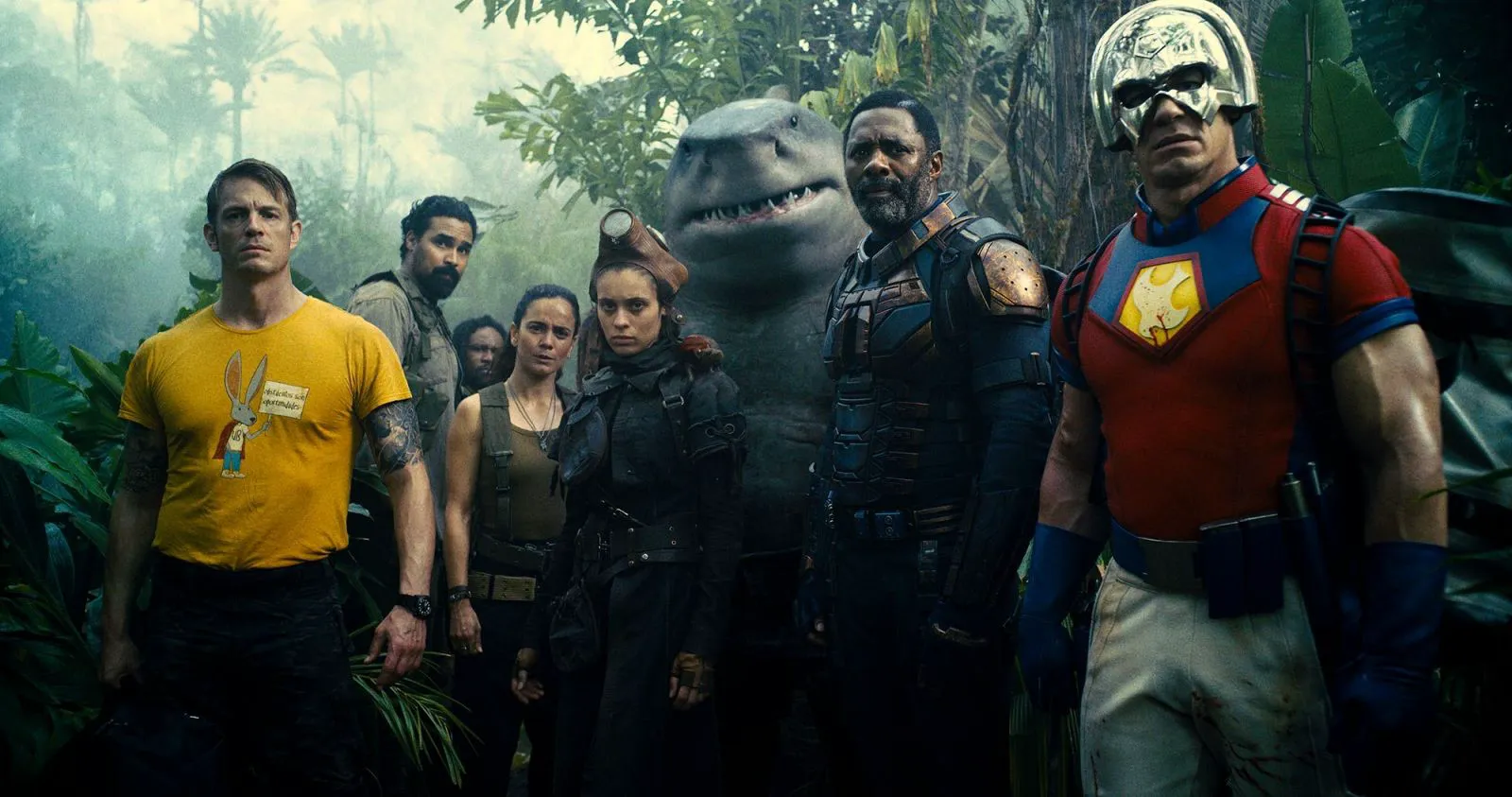The Suicide Squad: A Bloody, Chaotic, and Surprisingly Romantic Redemption
It’s a familiar story: a dozen supervillains languishing in a super-max prison are sent on a secret mission – to steal an experimental weapon from a third-world dictator. In exchange, the prisoners will get a chance at freedom, if they can survive hordes of enemies and avoid angering the authorities, who are ready to detonate the bombs implanted in their brains at any moment. Among the would-be heroes are assassins Bloodsport (Idris Elba) and Peacemaker (John Cena), who have almost identical skill sets, Ratcatcher 2 (Daniela Melchior), who controls rodents, King Shark (Sylvester Stallone), a giant man-eating shark, Polka-Dot Man (David Dastmalchian), covered in colorful spots, and a whole host of other villains, from T.D.K. (Nathan Fillion), whose arms can detach from his body and live their own lives, to the anthropomorphic Weasel, and some familiar faces: Harley Quinn (Margot Robbie), Captain Boomerang (Jai Courtney), and military man Rick Flag (Joel Kinnaman), who is keeping an eye on the squad.

Idris Elba as Robert DuBois in a still from “The Suicide Squad”
James Gunn’s Unlikely Opportunity
As you may remember, James Gunn was fired from directing “Guardians of the Galaxy Vol. 3” in 2018 due to old offensive tweets that suddenly resurfaced. Disney has since come to its senses (helped by disgruntled fans and industry figures), but during his short, unscheduled break, Gunn signed on to direct the new “Suicide Squad” film for Marvel’s main comic book rivals, DC. They had just begun moving in a new direction: instead of failed attempts to build a Marvel-like cinematic universe, Warner Bros. decided to let their heroes and authors run wild. Want to make a “Joker” in the style of early Scorsese? Go ahead. Want a new “Batman” without Affleck? No problem. A sequel to the failed “Suicide Squad” that isn’t really a sequel at all, but a film of a completely different tone and genre? Why not?

Viola Davis as Amanda Waller in a still from “The Suicide Squad”
Gunn found himself in a diametrically opposed world: instead of the meticulously constructed MCU, where almost every creative step is controlled by Kevin Feige himself, he found a primordial cinematic chaos, where you don’t have to tie your film’s plot to an upcoming large-scale crossover or even think about how your ideas will fit into the global narrative. This approach is clearly closer to the director’s heart: even his “Guardians of the Galaxy” stood out because they were on the periphery of the Marvel universe and were only loosely connected to the other “Avengers” – both in terms of plot and style. The new “Suicide Squad” is completely free of any connections, even to the previous installment. It’s not a sequel, but a radical reimagining, a correction of mistakes, and an opportunity to give a second chance to heroes who were previously misused. This feature of Gunn’s film is elegantly reflected in the original title – The Suicide Squad (Ayer’s film was simply Suicide Squad, and the article “The” serves as an additional emphasis: this is not just “Suicide Squad”, but “the” “Suicide Squad”).

Sylvester Stallone as King Shark in a still from “The Suicide Squad”
Unfettered Creative Freedom
Moreover, the creative freedom here is clearly not imaginary – judging by the way the film turned out, Gunn was not controlled by anyone at all (or those who tried simply gave up at some point). This is probably the most violent and insane mainstream comic book movie from the big franchises: heads fly, blood flows freely, and faces explode into meaty chunks. With “The Suicide Squad,” James returns to his directorial roots: brutal splatter comedies and outright “trash” that he worked on at the legendary Troma studio under the wing of exploitation king Lloyd Kaufman. He shoots a multi-million dollar blockbuster with the enthusiasm of a daring debutant who has been given a camera for the first time and told to do whatever comes into his crazy head – and this is honestly the best possible approach to such a film. Even “Deadpool,” which has long held the title of the main R-rated comic book movie, feels quite safe compared to the new “Squad,” and its cynicism seems superficial. In Gunn’s film, not only villains die a violent death, but also quite central characters (that is, their squad fully justifies its name) and other “good” guys who were unlucky enough to get caught under the hot hand of the convict operatives. And the main antagonist may be, for example, a huge purple starfish – something quite in the spirit of Troma’s zombie chickens or trash classics like alien killer tomatoes.

Idris Elba as Robert DuBois in a still from “The Suicide Squad”
A Middle Finger to the MCU?
Intentionally or not, Gunn’s film shows a huge middle finger to everything Disney is doing with the Marvel Cinematic Universe. While they repeatedly hire indie directors who have no idea how to work with action scenes, who are needed solely to build character arcs within huge “phases,” “The Suicide Squad” demonstrates what will happen if you let someone who came from cheap genre cinema run wild within a blockbuster, someone who understands the value of eccentricity and is not afraid of crazy concepts (after all, Peter Jackson, James Cameron, Robert Rodriguez, and even Steven Spielberg were like that). At the very least, it will be fun. Although, toys with a hero torn to shreds are unlikely to sell much.
A Romantic Heart Beneath the Carnage
At the same time, even without going beyond the boundaries of his misanthropic style, Gunn remains a great romantic. Behind all the released guts in “The Suicide Squad,” you can see the same dramedy about a dysfunctional family that was at the heart of “Guardians of the Galaxy.” His characters – whether it’s the aging killer Bloodsport, the bloodthirsty patriot with the ironic name Peacemaker, or the quiet Polka-Dot Man, who imagines his own mother instead of enemies – are unsettled and awkward, looking for support among the same outcasts as themselves. They joke a lot (almost always successfully) and tease each other, sometimes even shooting at comrades for no reason, but no one is fooled by this: in essence, Gunn’s “Suicide Squad,” like his “Guardians,” is a group therapy session, a story of a society of anonymous killer psychopaths trying to come to terms with themselves. By very radical methods, of course, but what else to expect from a film whose moral center is a Portuguese homeless drug addict with the face of Taika Waititi.